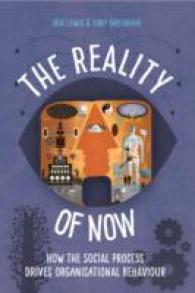Description
The collapse of central planning was hailed as evidence of the economic and moral superiority of capitalism over any possible alternative. The essays in this book challenge that claim.
The case for more democratic forms of enterprise management is considered from a variety of viewpoints. One chapter deals with the philosophical justification for enterprise democracy. The remaining chapters are devoted to the question of efficiency, which has been central to economic debates about ownership and control. The orthodox belief amongst economists is that any shift to more democratic forms of enterprise control would be unworkable. The essays in this book provide a thorough theoretical and empirical critique of this orthodoxy.
Table of Contents
1 INTRODUCTION Part I The philosophical case 2 THE PHILOSOPHICAL CASE FOR ECONOMIC DEMOCRACY Part II Theoretical issues 3 CAPITALIST VERSUS LIBERAL FIRM AND ECONOMY: OUTLINE OF A THEORY 4 IS THE DEMAND FOR WORKPLACE DEMOCRACY REDUNDANT IN A LIBERAL ECONOMY? 5 THE DISTRIBUTION OF WEALTH AND THE VIABILITY OF THE DEMOCRATIC FIRM 6 ORGANIZATIONAL FORM AND ECONOMIC EVOLUTION: A CRITIQUE OF THE WILLIAMSONIAN HYPOTHESIS 7 THE COMPETITIVE SELECTION OF DEMOCRATIC FIRMS IN A WORLD OF SELF-SUSTAINING INSTITUTIONS 8 FLEXIBILITY, POWER AND WAGE BARGAINING 9 IS THERE A CHANCE FOR THE WORKER-MANAGED FORM OF ORGANIZATION? 10 EFFICIENCY, EQUALITY AND ENTERPRISE DEMOCRACY Part III Experience and evidence 11 THE PRODUCTIVITY EFFECTS OF EMPLOYEE PARTICIPATION IN CONTROL AND IN ECONOMIC RETURNS: A REVIEW OF EMPIRICAL EVIDENCE 12 PEOPLE’S CAPITALISM: PROFIT-SHARING AND FINANCIAL PARTICIPATION IN CAPITALIST ENTERPRISES 13 PARTICIPATION AND SELF-MANAGEMENT IN DEVELOPING COUNTRIES 14 WORKER PARTICIPATION IN SOCIALIST AND TRANSITIONAL ECONOMIES








